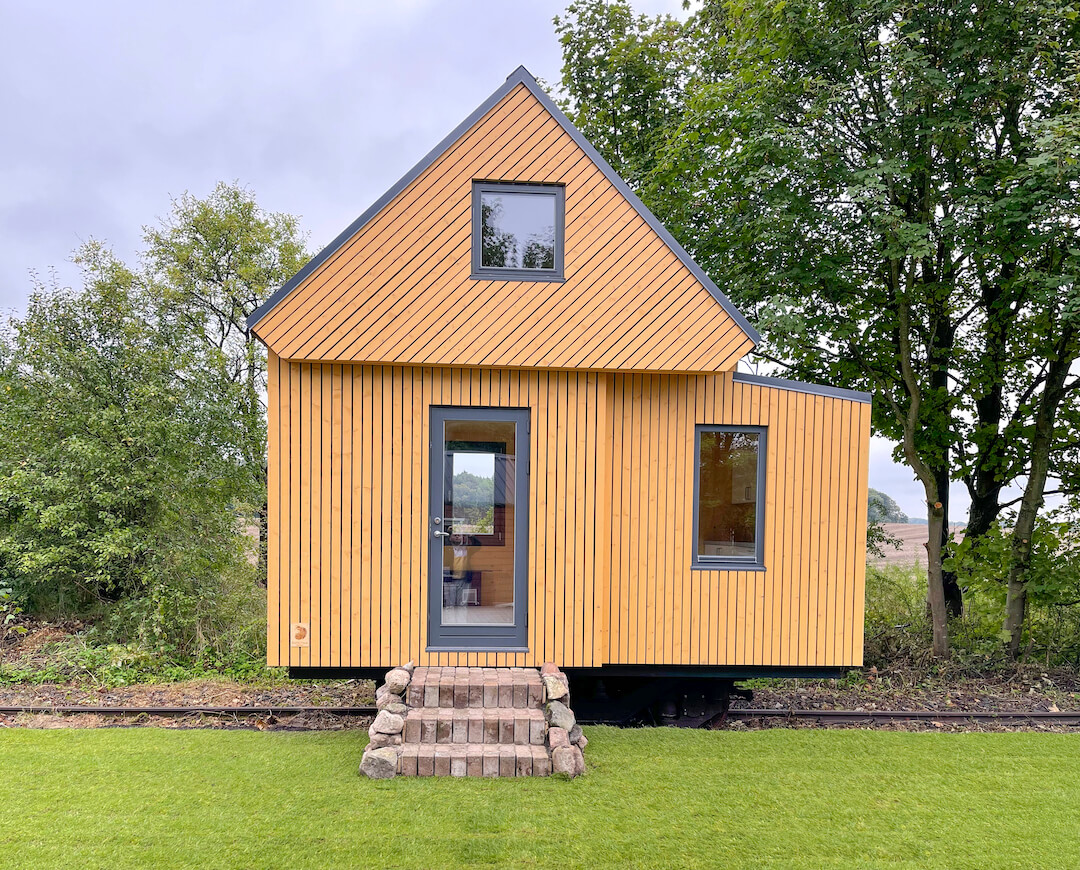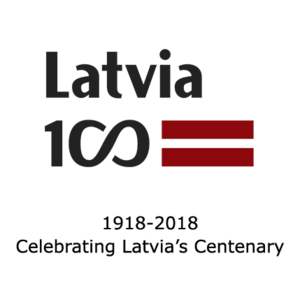Brette Haus – the folding houses built in Latvia that went viral
Featured in major media publications such as Business Insider, Lonely Planet, Wired, DesignBoom, and so many more, Brette Haus
has been in the spotlight over the past year or so for their unique concept – a foldable and relocatable house.
Co-founder Gennadii Bakunin was in the industry of developing abandoned buildings to improve housing availability. The company he was working at at the time was also looking into sustainable housing projects. He started looking into tiny homes, container homes, etc. Most of all, he was looking for something relocatable. They didn’t meet his expectations.
And so he realized he’d have to build them himself. The vision was to create a sustainable house that can be folded and moved to a different spot when necessary.
Going from idea to reality – and finding a springboard
After performing market research, Gennadii found that there was no demand in his home country of Russia, but the European market was promising. Particularly in the hospitality and tourism fields.
There’s a rising demand for relocatable premises for outdoor experiences. Owners of hospitality sites are interested in being able to migrate a house from one place on the property to another. This offers diversity for guests, and helps retain regular customers – because each visit can be in an entirely different environment.
The next question was – who’s going to build these houses and where? He ended up landing in Latvia to develop his business.
“Because our vision was to make these houses very natural and using wood and wood-based installations, we were looking for a country with a culture of wood manufacturing that would be quite high. Basically that means Finland and the Baltics. Then I learned about the startup visa in Latvia and Estonia. After a few meetings with LIAA I was very impressed. We decided to join Latvia.”
Gennadii came in the summer of 2018 to take a look. By February of the next year, they relocated to Latvia fully to establish a company and apply for the startup visa.
Building the houses and finding product-market fit
The first MVP (minimum viable product), which has been folded and unfolded over 10 times, is currently set up by the Dzirnavu Pirtiņa in Viļķene, which is available to be booked on AirBnB. Next year, it will likely be used in the savvala.lv contemporary art festival.
Brette Haus entrusts the manufacturing of their houses to an established facility in Limbaži. This model makes it possible for Brette Haus to submit orders for houses when there’s an actual purchase.
“There are over 100 wood manufacturers in Latvia, most of which are unprofitable. We didn’t want to be one of them, so we opted to work with an already established manufacturer to reduce overhead costs.”
Currently, three houses have been sold – to Germany, Switzerland, and Spain, with a few major projects in the pipeline.
The German client is re-developing an abandoned railway station. The Brette Haus houses will be set up on the train platforms. The Germans chose Brette Haus because of its adherence to energy efficiency regulations in the country.
The second partner in Switzerland is a land developer who wants to make affordable hospitality for students (which is cost prohibitive for many students in Switzerland). They want to take these portable cabins and place them on land plots that will only be developed at a later date. And then relocate them every couple of years.
The third client in Spain is developing an energy-efficient community for Dutch citizens who are looking for a warmer climate.
Brette Haus works predominantly with distributors and partners who are interested in ordering multiple houses. Not only does it cut down on costs when manufacturing in bulk, it also means there are less customizations that have to be made, which is tricky to engineer, since everything has to fit perfectly together.
Getting noticed globally
2021 has been a major year for Brette Haus, as unexpected media coverage made them go viral. As a result, they’ve had over 2000 requests from individual buyers over the last 6 months. They’ve said no to all of them.
“There has been extensive interest from private buyers. It’s been very painful to say no to them. We want to build a standard product, but private buyers want to customize. And because the system is folding, everything is hyper-optimized that you can’t really make any changes. It’s very frustrating because you want to help this person.”
How did the houses, which were relatively unknown, go viral? Gennadii tells me that it started with an American blogger who made a video about the brand – without consulting Brette Haus themselves. Gennadii only found it thanks to a Google Alert he had set up with the brand’s name. It was then picked up by a medium-sized publication, and after that went viral.
Since going viral, Gennadii says it’s been a task to keep up with all of the media requests for images and quotes. They’ve stopped all of their own marketing efforts, because they’ve already got plenty of coverage. However Gennadii emphasizes that though the media coverage has been extensive, this marketing activity has been imprecise – bringing in lots of requests, but not from their ideal clients. Going viral, it seems, is a double-edged sword.
Settling into the wood manufacturing scene in Latvia
For the first few years, Gennadii was moving between Latvian and Russia. However now, he’s fully based in Latvia. He sings the wood manufacturing industry in Latvia songs of praise, as well as the country’s nature and lifestyle.
“The culture of wood manufacturing is very strong in Latvia, despite the Soviet impact of improper use of wood in construction. People here really know how to work with wood. The new wooden technologies here are fine, and I’m proud to work with our manufacturer, the products they make are very good. The only weak spot here is that factories are standalone. If they were more like a cluster, it would be much easier for them to export more and at higher prices.”
Gennadii’s impression is that companies are afraid to talk to their neighbour, because they’re afraid of their customers being stolen. However this leads to a silo effect, and were these brands to work together, they could achieve greater results by pooling their resources.
He has also found that there seems to be little interest in local success stories. This was based on having reached out to several publications in Latvia, and receiving little to no interest. He says he feels that Latvians don’t seem to be very interested in what’s going on in Latvia.
At the same time, he has found society and the environment to be incredibly welcoming. When I asked him if there was anything else to add to the interview, Gennadii said this:
“I really like to live in Latvia. Last year I was invited to play beach volleyball once. And then it was two months of working at night and volleyball during the day. It’s some kind of magic nature and weather. I went to Moscow recently for two weeks and didn’t like it at all. I was waiting for the time to get back to Latvia. There’s this beautiful nature, every time I try to find a new place in the forest.”
Enough to make a Latvian writer’s heart melt. Right now, Brette Haus is looking forward to several major projects with multiple orders. As a foreign founder who has relocated to Latvia using the startup visa, this is certainly a success story worth noting.
 Facebook
Facebook






